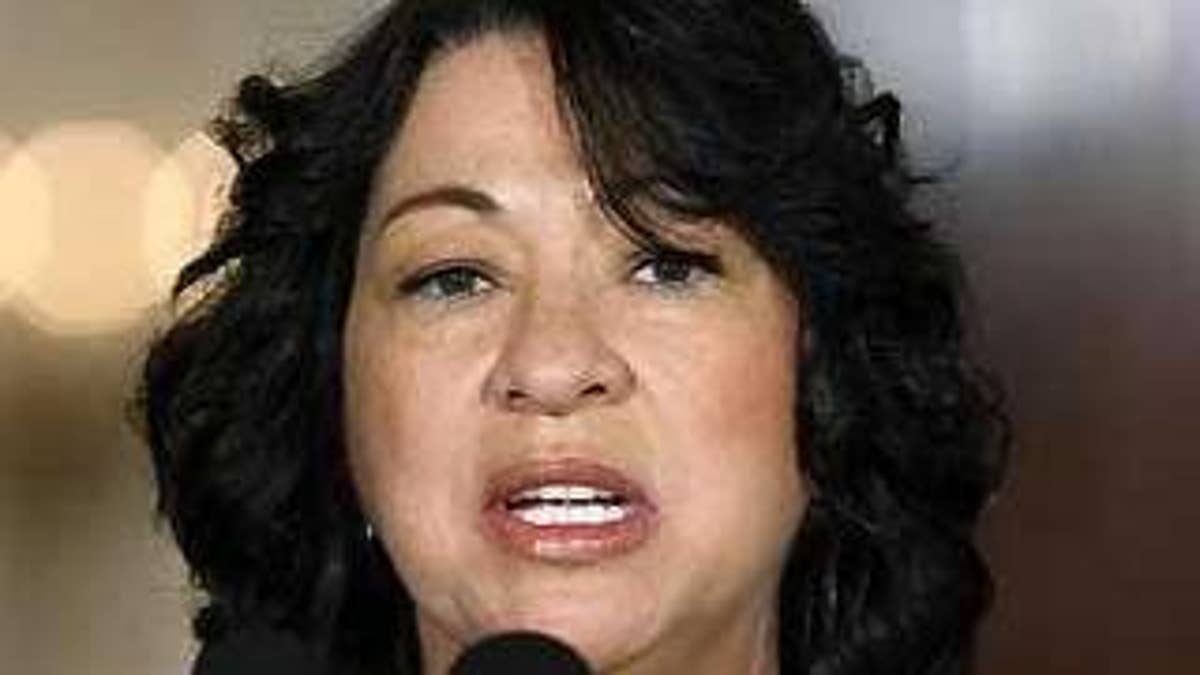
Environmentalists could have a friend in Judge Sonia Sotomayor.
With lawmakers and interest groups poring over the Supreme Court nominee's decisions, some are drawing attention to her scant, but potentially revealing, environmental record.
One case in particular, for which Sotomayor authored an opinion in 2007, could come up during the Senate's summer confirmation hearing.
Add that to the host of cases that critics and supporters say shed light on Sotomayor's stances on abortion, discrimination, gun control and other hot-button issues.
The 2007 case pitted environmental groups against the Environmental Protection Agency, which at the time was willing to allow a cost-benefit analysis for decisions power plants make when upgrading technology aimed at protecting the environment -- in this case, to protect fish in waterways impacted by the plants.
But Sotomayor ruled that, according to the relevant statute, the EPA must consider the best technology available -- and cannot factor into the equation the billions it would cost businesses to comply.
"The statutory language requires that the ... selection ... be driven by technology, not cost," read the opinion from the 2nd Circuit Court of Appeals.
The U.S. Supreme Court did not agree and reversed the decision just weeks ago -- in one of a string of reversals Sotomayor's opinions have endured from the high court.
Writing for the majority, Justice Antonin Scalia noted that forcing compliance under Sotomayor's reasoning would make companies spend nine times the amount necessary to accomplish "nearly the same benefit to the environment that cheaper technologies would achieve."
"The EPA's current practice is a reasonable and hence legitimate exercise of its discretion to weigh benefits against costs ... We conclude that the EPA permissibly relied on cost-benefit analysis," the majority said in its April decision.
The ruling sat much better with business advocates than did Sotomayor's.
"If the best available technology is only so good to save X number of fish and you have to spend X billion dollars more to come up with better technology and implement it, those costs are going to be passed on to consumers and their energy bills," said Glenn Lammi, counsel to the Washington Legal Foundation.
Reece Rushing, with the Center for American Progress, said the environmental community was "very disappointed" when the decision was reversed. But Rushing said environmentalists are "very positive" about Sotomayor, due to her opinion in that case.
"I think there's evidence that she'll continue that on the Supreme Court," Rushing said.
But even environmental groups who view Sotomayor as a positive choice want to know more - given that the Supreme Court is increasingly likely to be asked to weigh in on similar disputes.
"This is a major area of policy making. It will be a major area of litigation as regulation and policies are developed," Rushing said.
The case that would give both sides a better view of Sotomayor's philosophy on the environment involves global warming, but it strangely has been held up for nearly three years since it was argued before the 2nd Circuit Court of Appeals. No explanation has been given for the delay.
FOX News' Shannon Bream contributed to this report.




